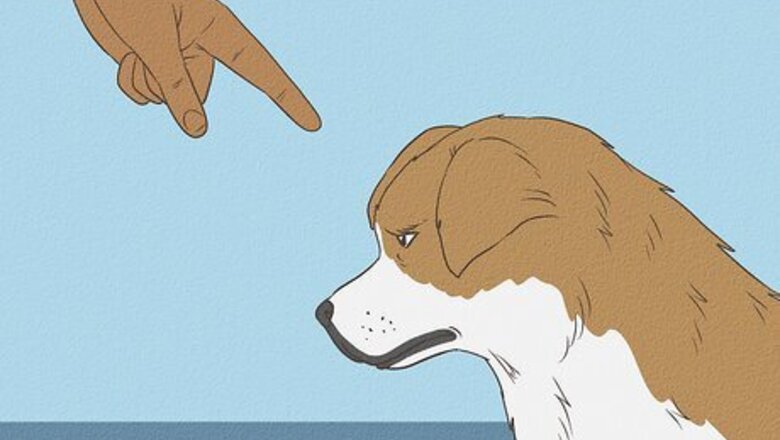
views
Responding to Bad Behavior

Correct your dog's behavior. If your dog misbehaves, give them a cue or sign that they've made the wrong decision. You might say, "Think again," or a similar phrase in a cheery, but corrective tone of voice. The tone should suggest, "Are you sure you want to do that?" Your dog will recognize your tone as much as the words. Remember that your dog is not maliciously trying to disobey you. When your dog does something you don't want them to do, you need to let them know not to repeat this behavior in the future. React quickly to bad behaviors you want to stop. Associations between a behavior and a consequence require fast action. If too much time passes between action and consequence, your dog won’t understand.
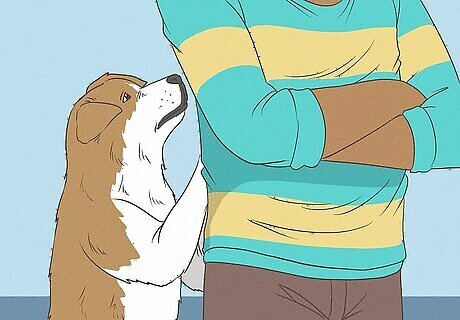
Remove your attention. If the dog continues to do the wrong thing, turn your back or leave the room so that you withdraw your attention. Dogs are sociable animals and want to be at the center of things. Being left out or ignored makes them reconsider their actions. If you catch bad behavior early, you can stop it before it's ingrained. For example, if you're teaching your dog a command and they refuse, say, "Think again," and turn your back. Your dog should realize that they've done the wrong thing. Turn back around and repeat the initial command. If they still don't cooperate, say, "Think again," and turn your back. Repeat this until they understand the correct behavior. As another example, if your dog bites you while you’re playing, yell “Ouch!” to show them it hurt and turn away from them to ignore them for 5-10 seconds. They’ll associate biting with being ignored.
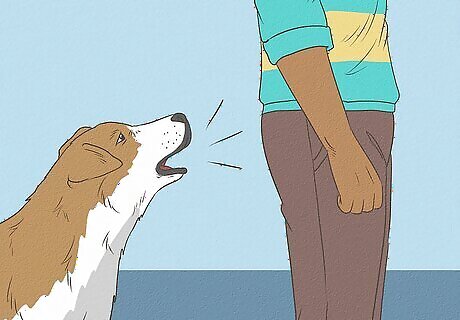
Avoid making a big show out of bad behavior. If you get worked up, your dog may start acting badly just to get your attention. By acknowledging your dog or shouting at them, you're accidentally rewarding the behavior with attention. This will make them more likely to repeat the behavior in the future. Remember that even scolding and shouting are rewards to a dog. For example, if the doorbell rings, it may catch your dog off guard making them bark with surprise. If you ignore the bark, they get no reward. If you go tell them to hush, you just rewarded them by giving them attention.
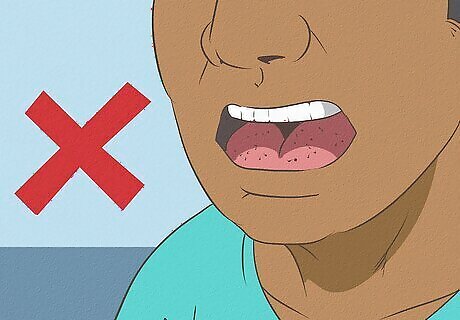
Do not raise your voice or hit your dog. Verbal or physical discipline is not an effective way to prevent bad behavior. Your dog will simply learn to fear you and they won’t know why they’re being hurt. For example, hitting your dog after they urinate in the house might just cause them to hide where they urinate. This won't help you, since you'll spend more time looking for soiled areas in order to clean them up. Your dog doesn't understand physical or verbal punishment. They'll just be confused and hurt, which will damage your relationship. When it comes to potty training a puppy, remember that it takes time. Only use positive reinforcement if you want to train them as quickly as possible! The most important of disciplining a dog is to be clear and to use time and repetition instead of force.
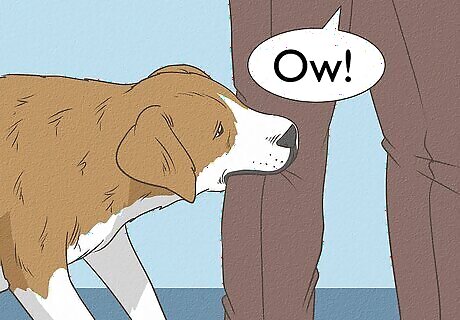
Teach inhibition for biting issues, specifically. Biting is a bad behavior that must be controlled. Teach your dog that biting can hurt people by yelping or going “ow!” whenever they bite. Stop playing immediately and leave the room. Withdrawing the fun and attention is punishment in terms that your dog will understand. They'll soon associate rough playing with an end to the game and they’ll stop biting. Full-grown dogs that bite might be doing so because they are aggressive, and it will be more difficult to train them to stop without professional help. Consider calling your vet or an obedience trainer for insight.
Preventing Bad Behavior and Habits
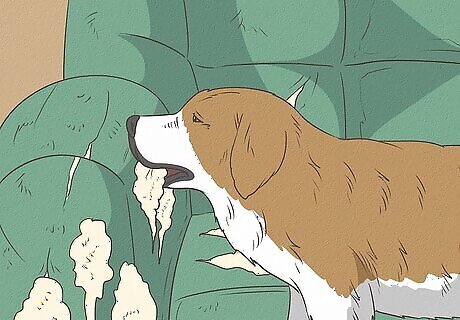
Identify the source of your dog's bad behavior. Dogs don’t misbehave out of malice. If your dog appears to misbehave, such as chewing your shoes, destroying furniture while you're out, or growling at strangers, then the dog has a reason to do so. You just haven’t figured it out yet! Try to look for patterns in their behavior to identify triggers. For example, if your dog chews the furniture when you are out, they may be doing so because they're bored or anxious at being separated from you. If a dog barks at other dogs, perhaps they’re reactive and need to learn that other dogs aren’t encroaching on their territory. If your pup is going potty inside, it’s a sign that they need to be taken out more often.
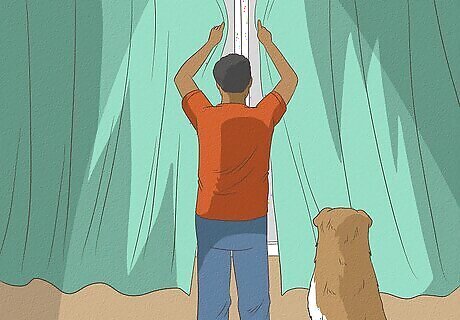
Remove triggers that motivate bad behavior. Once you've figured out what's causing your dog's bad behavior, try to remove the triggers. Maybe you've found that your dog barks when something excites them, like seeing someone walk down the street or a car drive past. To prevent barking, you might close the curtains. For example, if your dog is chewing on your shoes, just store your shoes out of reach and leave a chew toy out, instead. You can also make arrangements so your dog is less likely to get caught by surprise, which can trigger a lot of bad behavior. Lett them see strangers from the window before they come in, for example.
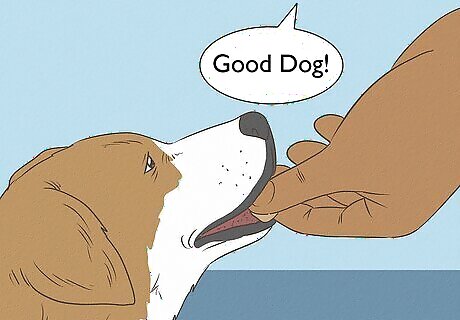
Reward good behavior early and often. While disciplining your dog for bad behavior is fine, rewarding them for good behavior is the best way to help the dog learn good habits. Use positive reinforcement if your dog plays nicely, responds to commands, or successfully eliminates in the right spot. Offer them treats, give the dog praise by saying "Good dog!" in a cheerful voice, or offer a few head scratches or belly rubs. Reward the behavior immediately after the action, so your dog creates a positive association. If you reward them too soon or too late, your dog won't understand why they're getting the reward.
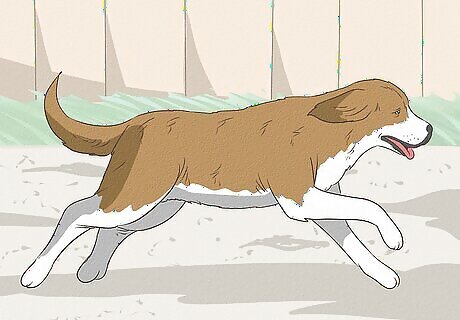
Keep your dog active with exercise and play. Dogs that are bored or inactive tend to act out more often than well-exercised dogs. If your dog spends most of their day inside, they may just jump up, bark, or act out when they finally do get outside or when you get home. Try to let your dog take a walk or run outside for at least an hour every day. Make sure your dog has plenty of chew toys. This can keep them active and occupied when they have to remain inside. It can also prevent bad behaviors, like gnawing or chewing things they shouldn't. If you can’t seem to prevent accidents inside when you’re away at work, hire a dog walker or enlist a neighbor to let your dog out.
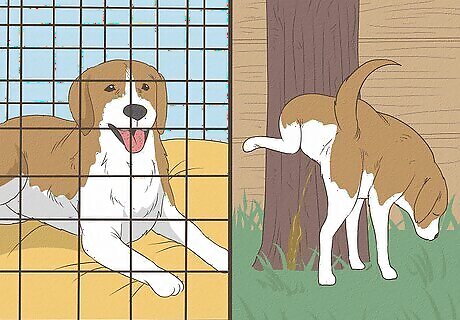
Establish routines to keep your dog calm. Your dog may engage in bad behaviors if they're feeling stressed or unsure. You can make your dog feel more secure and relaxed by establishing simple routines. For example, if your dog is inappropriately urinating, start by crate training them and regularly taking them outside to the same spot to urinate. If you do this at set times, they'll learn to associate urinating with the correct spot. Feed and play with your dog at regular times. This way, your dog will learn to expect attention and care. They'll be less likely to act out or try to get your attention if they know that playtime is coming.
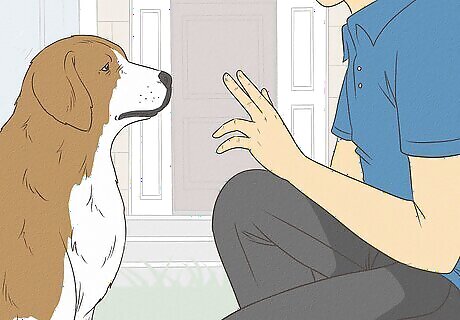
Know when to get help from a trainer. If you can't figure out what's causing your dog's bad behavior or if your dog's behavior doesn't improve, get the advice of a professional animal behaviorist or pet psychologist. You can ask your veterinarian to recommend someone who's trained, registered, and approved. You may also ask your vet to check the dog over for a medical condition that may be causing the bad behavior. Getting a physical is especially important for older dogs. For example, your dog might have an incontinence issue due to a medical problem. Your vet will be able to diagnose and recommend further medical or behavioral treatment.




















Comments
0 comment